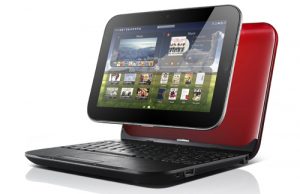
Computer companies are freeing themselves of the “Wintel” (Microsoft-Intel) paradigm that dominated the industry for the past 30 years and, in the process, are opening up opportunities for new product innovation.
That’s the view of Yang Yuanqing, CEO of China’s Lenovo, who spoke to TechCentral on a recent visit to SA. Yang says the emergence of new operating systems, form factors and microprocessors is resulting in a new wave of innovation in the computer industry.
Pointing to the IdeaPad U1 Hybrid, a new Lenovo device that doubles both as a Windows 7-based laptop and an Android tablet when the screen is lifted, Yang says Wintel “dominated the industry [and] this was a barrier to doing innovation beyond the PC”.
He says it’s not surprising that it was Apple, and not a traditional PC company, that led innovation in and now dominates the market for tablet computers with the iPad.

“The horizontally integrated model helped this industry to improve and grow over the past 30 years, but it’s very hard to do innovation beyond the PC,” Yang says. “Apple integrated the value chain to do one innovation. With this new, vertically integrated innovation model, you can do more innovation now.”
He says Lenovo recognised the trend early on, and five years ago began working on what he calls a “new kind of product” — mobile Internet devices. This, Yang says, has allowed Lenovo to gain market share for five successive quarters.
“Everyone says the PC industry is highly commoditised, but there’s a lot of room to innovate,” he insists.
Lenovo, with headquarters in China and the US, acquired IBM’s PC Company Division in 2005 for US$1,75bn. It has since grown into a $16,6bn-revenue company with more than 10% of the worldwide market for PCs.
Though Yang sees new computing products emerging — its Android-based LePad tablet that can double as a screen for a Windows-powered notebook being one example — he doesn’t believe the traditional PC form factor is in any way under threat.
“Tablets will not replace PCs,” he says. “There is a certain level of cannibalisation, but we believe this kind of device will account for 15%-20% of the total PC market in a couple of years. People will still carry two devices.”
What will happen is that consumers will pay less attention to what kind of operating system and hardware they’re using, Yang predicts. “They only care about the customer experience, the user experience. They only care about the applications, whether they can get enough applications to use.
“I think that’s good — nobody will dominate the operating system and processor markets so there will be multiple choices in this area.” — Duncan McLeod, TechCentral
- Subscribe to our free daily newsletter
- Follow us on Twitter or on Facebook




